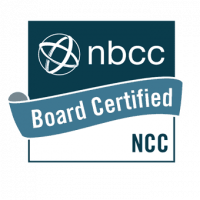Your Guide To Domestic Abuse and Therapy
Domestic abuse is a hidden problem in our society, affecting many people and leaving them with deep emotional, physical, and mental wounds. But there is hope in therapy. With the right tools and guidance, therapy can help survivors heal and regain control. In this article, we will explore the world of domestic abuse and the powerful role of therapy in helping victims find their path to recovery and strength.
What is Domestic Abuse?
Domestic violence and abuse is more than just a single act; it’s a system where one person seeks to control another. Most commonly recognized as physical violence, its forms are diverse and insidious. Central to this concept is intimate partner violence, where someone might face not only physical harm but also sexual offenses, emotional distress, and unyielding stalking from someone close, like a current partner or ex-spouse.
But we must look beyond just romantic relationships to truly grasp its extent. Abuse can also arise in families, where parents might control their children excessively or siblings might harm each other. Even roommates can fall into patterns of dominance and control. Shockingly, more than 10 million Americans experience physical abuse from an intimate partner each year. This vast number is felt when you consider that national helplines receive over 20,000 distress calls daily, with each call echoing a life in distress.
Recognizing the Red Flags: The Signs of Domestic Abuse
Spotting the signs of domestic abuse is a crucial step toward intervention and healing. Here are some signs to be aware of:
- Emotional and Psychological Harm: This includes constant criticism that undermines a person’s self-worth, blackmail to control their actions, or emotional manipulation that makes the victim feel at fault for the abuser’s actions.
- Physical Violence: From minor acts like pushing or grabbing, it can escalate to more intense physical harm.
- Stalking: This involves repeated unwanted attention, persistent phone calls, messages, and, in our modern world, online stalking, creating an atmosphere of constant surveillance and threat.
Top Spousal Abuse Therapist Match - Available in Frisco Texas Online

MS, LPCC, LPC, NCC
Therapist | Licensed Professional Clinical Counselor | Nationally Certified Counselor
With over 15 years of clinical experience, I, Megan Corrieri, MS, LPC, NCC, am deeply committed to supporting victims of spousal, domestic, and sexual abuse. My approach is rooted in compassion, expertise, and a genuine understanding of trauma. Guiding and empowering those on their healing journey is not just my profession, but my passion.
What Form Of Counseling Works Best?
Embarking on a healing journey after domestic abuse can be daunting, but the right therapeutic approach can make all the difference. Here’s a simplified guide to understanding the most effective counseling techniques tailored for survivors:
1. Trauma-Focused Cognitive Behavioral Therapy (TF-CBT)
- What is it? An integrated approach combining cognitive and behavioral therapies to reframe distorted beliefs stemming from abuse.
- Benefits: Helps in understanding and processing trauma, reducing symptoms of post-traumatic stress and depression.
2. Eye Movement Desensitization and Reprocessing (EMDR)
- What is it? A technique to process traumatic memories with the aid of an external stimulus.
- Benefits: Transforms how traumatic memories are stored, making them less harrowing.
3. Dialectical Behavior Therapy (DBT)
- What is it? A blend of cognitive-behavioral techniques and mindfulness strategies.
- Benefits: Provides coping strategies, emotion regulation, and enhanced interpersonal skills.
4. Narrative Therapy
- What is it? Allows survivors to reshape their personal narratives in alignment with their core values.
- Benefits: Offers empowerment, diminishing feelings of shame or blame.
5. Group Therapy
- What is it? A collective space for survivors to share, support, and learn under professional guidance.
- Benefits: Counters feelings of loneliness, offers validation, and fosters a supportive community.
6. Empowerment-based Therapy
- What is it? A technique focused on amplifying a survivor’s control over their life.
- Benefits: Challenges feelings of powerlessness and boosts one’s sense of value.
7. Solution-Focused Brief Therapy (SFBT)
- What is it? A forward-looking approach focusing on solutions rather than past traumas.
- Benefits: Equips survivors with prompt coping tools, aiding early recovery stages.
In choosing a therapy, remember: what matters most is what feels right for you. Collaborate with your therapist to ensure a journey where you feel safe, validated, and empowered.
Debunking Myths: Stereotypes of Domestic Abuse Survivors
Domestic abuse is an issue that affects countless individuals across the globe. Unfortunately, several myths and stereotypes surrounding survivors continue to persist, furthering stigma and misunderstanding. Let’s set the record straight by addressing and debunking some of the most common misconceptions:
| Myths | Truths |
|---|---|
| Only women are victims of domestic abuse. | Both men and women can be victims of domestic abuse. Abuse knows no gender boundaries. |
| If the abuse was really bad, they would just leave. | Leaving an abusive situation is incredibly complex. Factors like fear, financial dependency, and emotional manipulation can hinder escape. |
| It’s not abuse if it’s not physical. | Abuse can be emotional, psychological, financial, or sexual. It doesn’t have to be physical to be damaging. |
| Domestic abuse only happens in certain socio-economic groups. | Domestic abuse happens across all backgrounds, cultures, and income levels. It doesn’t discriminate. |
| If someone stays in an abusive relationship, they must enjoy the drama. | Staying doesn’t mean they enjoy it. Complex psychological factors, fear, or a sense of powerlessness can make leaving seem impossible. |
Effectiveness of Domestic Violence Counseling
In the face of the deeply scarring impact of domestic violence, counseling has emerged as a crucial pathway to healing and recovery. Recent studies, such as a comprehensive review in 2020, affirm the potential of psychotherapy to alleviate the depression and anxiety resulting from intimate partner violence. This study cast a spotlight on a variety of therapeutic methods, from the more commonly practiced behavioral therapy and CBT to specialized techniques like art therapy and mindfulness practices.
Comprehensive Domestic Violence Services
Dr. Sullivan underscores that providers dedicated to assisting survivors tend to offer a wide array of services tailored to address the multifaceted challenges posed by domestic violence:
Counseling: This focuses on addressing the emotional trauma experienced, symptoms of anxiety, PTSD, and other psychological effects.
Legal Support: Essential for those wading through the legal complexities in the aftermath of abuse.
Financial Programs: These are designed to help survivors achieve financial independence, a crucial step towards breaking free from the control of their abusers.
Employment Support: From job training to placement support, these services aim at ensuring survivors can rebuild their professional lives.
Children’s Programs: Tailored specifically for the younger victims or witnesses of domestic abuse, these programs provide therapeutic support and more.
Prioritizing Safety and Expertise in Therapy
As one begins the therapeutic journey:
Ensure Personal Safety: The safety of survivors should be the topmost priority. If there’s a threat of immediate danger, securing oneself becomes the primary concern.
Seek Qualified Counselors: It’s paramount to choose therapists specifically trained in domestic violence issues. Therapists without this specialized training might unintentionally intensify feelings of guilt or blame.
Navigating the Path Forward
For those grappling with domestic abuse, seeking help without delay is vital. Every state has dedicated coalitions against domestic violence, standing ready to provide essential assistance and resources.
In essence, while the journey of healing from domestic abuse can be daunting, with the right support and resources, recovery is within reach.
When should you seek counseling?
Seeking counseling for past or present domestic abuse or domestic violence is crucial. Often, the emotional and psychological impact of such experiences can be profound and long-lasting. It’s essential to understand that every individual’s reaction to trauma is unique, and there’s no “right time” that applies to everyone. However, here are some signs and situations which indicate it might be time to seek counseling:
| Sign | Description | Action to Take |
|---|---|---|
| Recurring Memories or Flashbacks | Constant intrusive thoughts about the abusive events, potentially causing anxiety and fear. | Seek therapy for potential PTSD symptoms. |
| Emotional Numbness | Feeling detached from others or emotionally “flat” as a defense mechanism. | Consider counseling to discuss emotional unavailability. |
| Sleep Disturbances | Experiencing nightmares, night sweats, or insomnia. | Discuss sleep issues with a healthcare provider; therapy may help. |
| Depression or Anxiety | Persistent feelings of sadness, hopelessness, or excessive worrying. | Consult a mental health professional for diagnosis and treatment options. |
| Relationship Challenges | Difficulty trusting others or forming healthy relationships. | Consider relationship or individual counseling. |
| Feelings of Shame or Guilt | Blaming oneself for the abuse. | Counseling can provide a fresh perspective and coping strategies. |
| Isolation | Withdrawing from social circles and activities; feeling isolated even in company. | Seek therapy to explore feelings of isolation and loneliness. |
| Physical Symptoms | Experiencing unexplained pains, aches, or other health issues. | Consult a medical professional and consider mind-body therapeutic approaches. |
| Substance Abuse | Using alcohol, drugs, or other substances to cope. | Seek addiction therapy and counseling for underlying issues. |
| Self-Harm or Suicidal Thoughts | Engaging in self-destructive behavior or having suicidal thoughts. | Seek immediate professional help; this is a medical emergency. |
| Childhood Witness to Domestic Violence | Grew up witnessing domestic abuse, which could affect adult relationships and emotional well-being. | Consider counseling to explore the long-term impact of early exposure to abuse. |
| Current Safety Concerns | Currently in an abusive relationship or feeling at immediate risk. | Reach out to domestic violence helplines or shelters for immediate assistance, in addition to counseling. |
It’s also worth noting that even if a survivor doesn’t manifest any of the above symptoms, counseling can still be beneficial. Everyone processes trauma differently, and professional guidance can be instrumental in healing and moving forward.
If you or someone you know is experiencing domestic violence, please reach out to appropriate local resources or helplines. Safety and well-being should always be a priority.
Let Us Be Your Compass
For those in Frisco facing the challenges of domestic abuse, understanding the signs and seeking support is vital. Let NorthStar Counseling & Therapy and let Megan Corrieri guide you towards a safer, brighter horizon.

Owner, Clinician, Wife & Mom
Share:
Other helpful resources.
| Resource | Author or Program | Source or Publication |
|---|---|---|
| Books | ||
| The Gift of Fear | Gavin de Becker | Little, Brown and Company |
| Why Does He Do That? | Lundy Bancroft | Berkley Books |
| Healing the Trauma of Domestic Violence | Edward S. Kubany, Mari A. McCaig | New Harbinger Publications |
| It’s My Life Now | Meg Kennedy Dugan, Roger R. Hock | Routledge |
| Hotlines & Websites | ||
| National Domestic Violence Hotline | N/A | thehotline.org |
| DomesticShelters.org | N/A | domesticshelters.org |
| RAINN | N/A | rainn.org |
| Mobile Apps | ||
| Aspire News App | Robin McGraw | App Store, Google Play |
| My Plan App | One Love Foundation | App Store, Google Play |
| Therapy Programs | ||
| Cognitive Behavioral Therapy (CBT) | Various Providers | Local health centers, online |
| Dialectical Behavior Therapy (DBT) | Various Providers | Local health centers, online |
| Community Support | ||
| Local Support Groups | Various Providers | Churches, community centers |
| Women’s Shelters | Various Providers | Local |
Please note that resources and their effectiveness can vary by individual. Always consult with a healthcare provider for the most accurate health advice.







